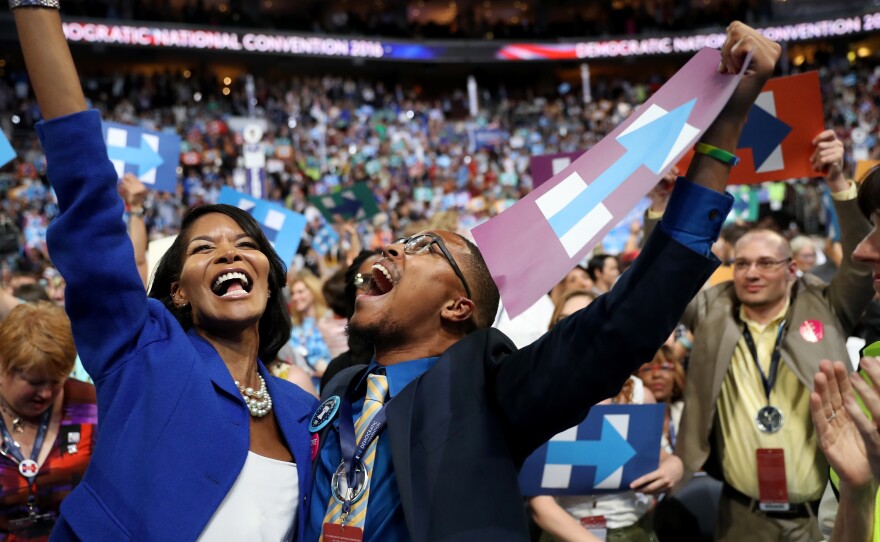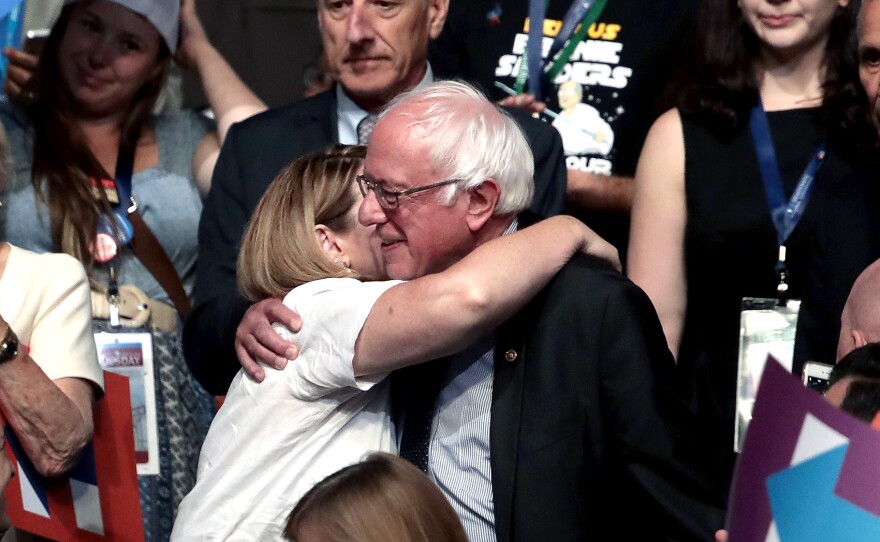

The Democratic National Convention made history Tuesday evening: Amid applause, shouts, cheers and in some cases tears, the delegates on the floor of the Wells Fargo Center in Philadelphia nominated Hillary Clinton for president of the United States.
Clinton is now the first female presidential candidate of a major American party.
It is a historic moment 150 years in the making, starting when suffragettes demanded the right to vote and Victoria Claflin Woodhull became the first woman to run for president in the United States in 1872.
Baltimore Mayor Stephanie Rawlings-Blake opened the vote by asking delegates: "Are you all ready to make history?"
And then in a ritual that spans all 50 states and territories, each delegation cast its votes for Hillary Clinton or Bernie Sanders.
Quiet echoes of the acrimony that marked the first day of the convention were still heard in the arena, with some Sanders supporters booing when Clinton was mentioned. But on Tuesday, Clinton supporters were vociferous, easily drowning out the jeers.
The history of the moment was referenced often by delegates.
Isabel Baker, an 88-year-old delegate from Oklahoma, was born in 1929, just nine years after women were given the right to vote.
"I never thought I would live to see this day," she said, as she cast the state's vote.
When the chair of the convention called on the delegation from Vermont, Sanders took the microphone. He asked the chair to suspend the rules and nominate Hillary Clinton for president by acclamation.
"Sen. Sanders has moved in the spirit of unity," Rep. Marcia Fudge said, before asking the convention-goers if they were in favor of the motion.
The arena roared with "ayes" that propelled the moment into history books.
Some Sanders supporters objected, but the roar of the crowd quickly drowned them out. Some of them left the the floor and chanted "walk out" in the concourse of the arena.
Clinton's own path to this moment is decades in the making. Her political career began as a social activist in the late '60s. She became the first lady of Arkansas and the first lady of the United States. In 2001, she became a senator from New York, and beginning in 2009, she served four years as secretary of state during the Obama administration.
She ran for president and lost the Democratic nomination to President Obama in 2008. Back in June, when it became clear that she had enough delegates to win the nomination, Clinton acknowledged the milestone.
"Tonight's victory is not about one person," she said. "It belongs to generations of women and men who struggled and sacrificed and made this moment possible."
The proceedings began with nominating speeches for Sanders and Clinton.
Shyia Nelson, an environmental activist from Vermont, spoke in favor of Sanders' nomination.
"Our revolution continues; we will never stop working for a future we believe in," she said. "We will never stop fighting for the change we need and we will never forget the man who leads us."
Clinton's name was entered into nomination by Maryland Sen. Barbara Mikulski, one of the first female senators in the country.
"On behalf of all the women, I proudly place Hillary's Clinton's name in nomination to be the next president," Mikulski said to great applause.
Copyright 2016 NPR. To see more, visit http://www.npr.org/.






